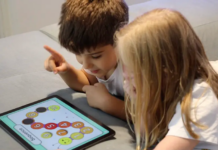Kate Lockhart: Content Strategist, Digital Wellbeing
Published on Google The Keyword
Oct 29, 2020
In early March 2020, we conducted a survey to better understand people’s digital wellbeing and tech use. Shortly after, daily life took a turn as the COVID-19 pandemic surged and shelter-in-place orders went into effect in many places throughout the United States. Given that change, we decided to do the survey again in September to check in and see how families’ digital wellbeing might have changed.
While these surveys represent a relatively small sample size of the U.S. population, they still provide valuable insight into recent behavioral trends and add to the ongoing conversation about tech use and mental wellbeing. When comparing the results, we saw some interesting changes to how parents are managing tech for themselves and for their children.
We saw that parents are struggling more now to maintain healthy digital habits for their kids:
- In March, 52 percent of parents said they’re overwhelmed managing the role of technology in their children’s lives. In September, that number rose to 60 percent.
- In March, 39 percent of parents reported not knowing what kind of tech boundaries to set for their children, compared to 51 percent who reported feeling this way in our September survey.
While our research revealed these challenges, we also saw that some parts of these families’ overall digital wellbeing have improved:
- In March, 34 percent of parents said they were likely to unplug and take tech breaks. In September, 41 percent of parents reported they were currently unplugging and taking tech breaks.
- In March, 63 percent of parents said they felt they could model digital wellbeing habits to their children. In September, that number rose to 73 percent.
- In March, 68 percent of parents said they use technology to keep their children entertained. In September, that dropped to 57 percent.
- In March, 54 percent of participants said digital technology has a positive impact on the time they spend with their families. In September, this number rose to 63 percent.
Everyone—children included—are inevitably spending more time online, and there are a handful of Google tools that can help the entire family with this increase. For example, the Family Link app helps you figure out what digital ground rules work best for your family, while also allowing you to keep an eye on kids’ tech use. The kids tab in Google Play features “teacher-approved apps” that are both enriching and fun. And Google Kids Space, a new experience available on select Android tablets, has tons of apps, books and videos for kids to discover. And there are also lots of ways parents can use our digital wellbeing features to take breaks from their devices, unwind for a better night’s rest and ultimately model better tech habits for the family.
Seeing the changes in the survey results helped us discover more about families and their tech use, and there’s still so much to learn. As we continue exploring this space, we’ll provide more learnings, tools and resources to support the unfolding changes. Learn more about our digital wellbeing resources at wellbeing.google.
Source:https://blog.google/outreach-initiatives/digital-wellbeing/families-and-tech-during-covid-19/
Comment: According to this article, people view technology in a more positive light since the COVID-19 pandemic. Google has put out a few different tools to help monitor the time spent online.





It’s nice to hear a positive aspect of the role that technology has on families during this pandemic. A reason why I believe the number increased for “participants said digital technology has a positive impact on the time they spend with their families” is because of the need to stay connected with families whether through Zoom, FaceTime, etc.